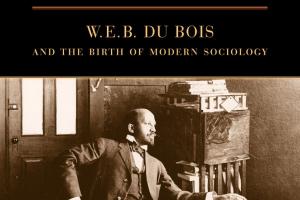This Week in People’s History, Feb 19–25, 2025
Portside
 The interviewer doesn't exaggerate in ranking W.E.B Du Bois as the 20th century's pre-eminent African-American author and thinker, crediting his founding and stewardship of the NAACP's The Crisis with granting him not just an agenda-setting role in civil-rights history but also international influence. Before going into detail with the biographer, he also praises Mullen for a work that is a timely introduction to this impressive and somewhat imposing figure.
The interviewer doesn't exaggerate in ranking W.E.B Du Bois as the 20th century's pre-eminent African-American author and thinker, crediting his founding and stewardship of the NAACP's The Crisis with granting him not just an agenda-setting role in civil-rights history but also international influence. Before going into detail with the biographer, he also praises Mullen for a work that is a timely introduction to this impressive and somewhat imposing figure.
 This new book argues that W. E. B. Du Bois was the first of the USA's modern sociologists. Du Bois's empirically-based studies of African Americans at the end of the nineteenth and the beginning of the twentieth centuries are models of sociological research. Aldon Morris details this legacy, which academic Sociology still does not universally acknowledge. In this review, Monica Bell considers the significance of Morris's argument.
This new book argues that W. E. B. Du Bois was the first of the USA's modern sociologists. Du Bois's empirically-based studies of African Americans at the end of the nineteenth and the beginning of the twentieth centuries are models of sociological research. Aldon Morris details this legacy, which academic Sociology still does not universally acknowledge. In this review, Monica Bell considers the significance of Morris's argument.
Spread the word